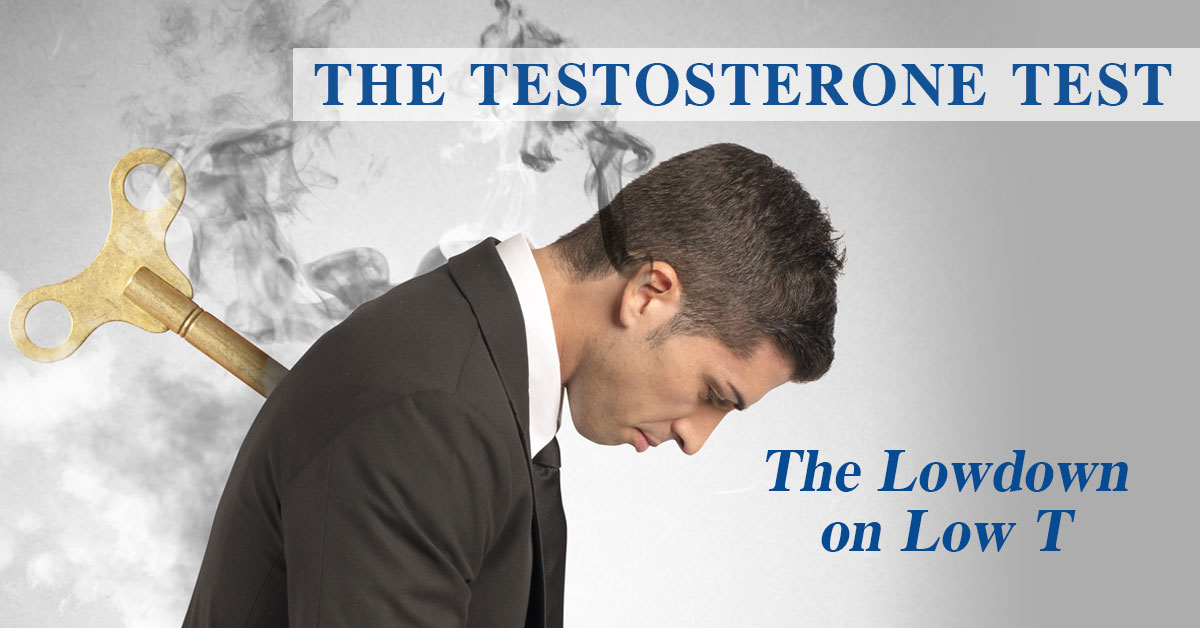THE TESTOSTERONE TEST – The Lowdown on Low T
Get your tablets out: True or False:
- Men stay virile forever
- Men get male menopause
- Low T stands for low opportunity to get the hot partner they long for
- Oysters make you horny
Answers: False. True. False. False. (but go ahead and think it if you love oysters)
After the age of 20, it’s thought that growth hormone levels in men drop around 14% every 10 years. That means by the time a man is 40 years old he’s lost about half of his 20-year-old growth hormones, and at 80 only 5% of the growth hormones remain. Unlike Peter Pan, you will grow up and with it, down go the hormones. Which is where the new guy on the hormone block comes in. This decrease in testosterone is often referred to as andropause, or male menopause. In the U.S. alone, andropause is thought to affect about 10 million men. “Andropause”? Who thought that one up? Is it the same as low T? Nope. They are not synonymous. Andropause is the gradual (note “gradual”, and stop sweating for a minute) decline of natural testosterone production and levels over time, something that does not occur in all men, and when it does, happens at different stages in their lives in different levels. Andropause (which a lot of medical people question existing at all), is something that is (generally) independent of your starting testosterone level. Low testosterone (or low T) is a condition that must be clinically diagnosed, and this can happen at any age and be caused by a variety of different diseases or disorders. Andropause is not necessarily caused by low T, but people can get confused when it comes to some of the overlapping symptoms:
- Fatigue
- Sexual dysfunction
- Infertility
- Weight problems
- Trouble concentrating
- Insomnia
- Loss of bone mass
- Loss of endurance
- Hair loss
- Depressed mood
- Anxiety
- Muscle weakness or loss
- Loss of height
- Change in ratio of fat to muscle
- And here’s the killer to guys—man breasts (NO, the dreaded man boobs) as they’re colloquially known.
Pause to Find the Real Answers
Low t can be troubling to any man. And just the thought of male menopause and what you consider to be the embarrassment of it can make you want to keep the problem to yourself. It’s not easy to talk about. But without question, the symptoms are not easy to live with. But there is an answer that is easy to live with, and his name is Stephen A. Goldstein M.D., F.A.C.S. at Denver Hormone Health. With years of experience and expertise in the area of testosterone and the issues surrounding it, he knows how to diagnose and treat any problems you might have with care and integrity. You might not even realize what’s really going on, but with simple tests, Dr. Goldstein can. And from there, he creates a treatment plan that’s tailored to you to make you feel your best.
Don’t avoid the issue.
In all ways, it’s the answer you’re looking for.







